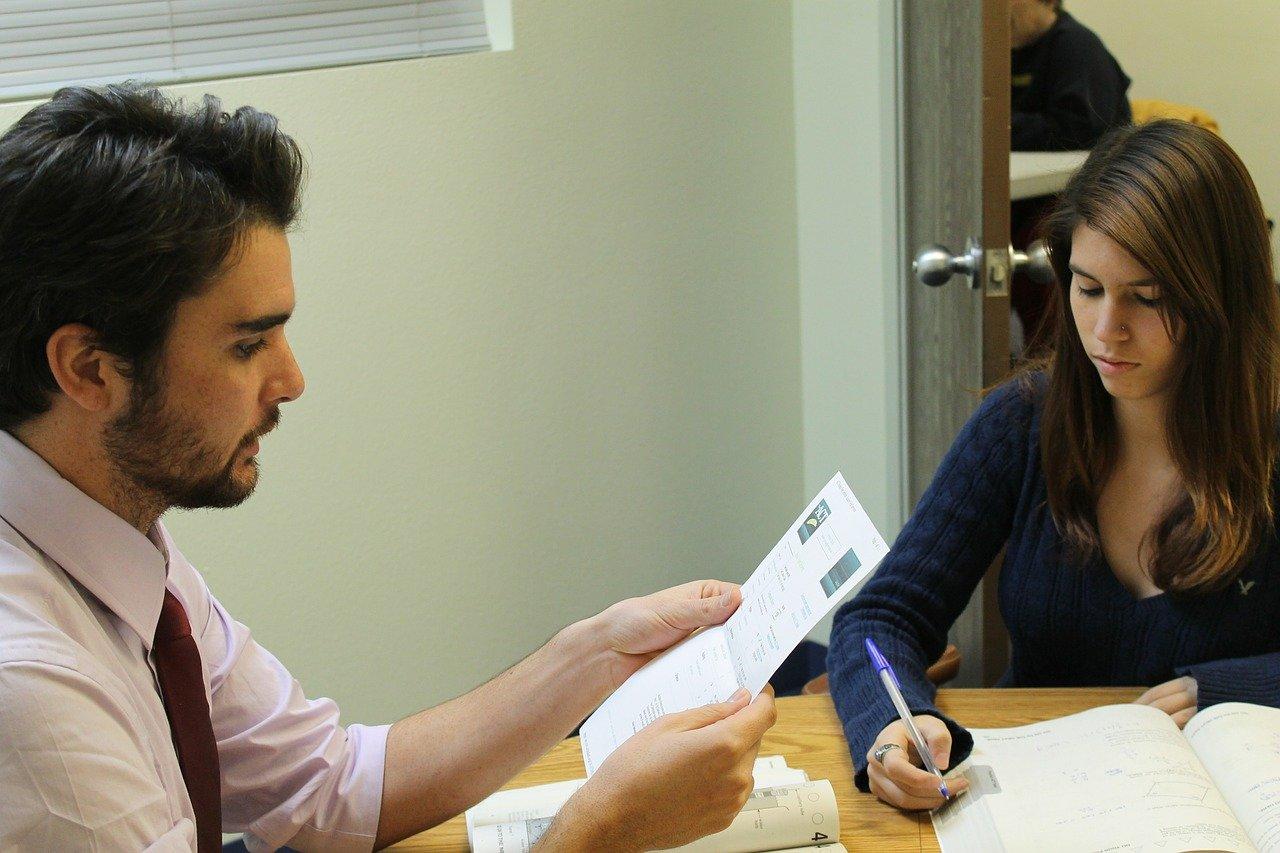Regardless of whether you are in primary or high school, predicting the outcome of an exam is difficult. Exams are generally feared and as the worst can happen to just about anyone, knowing how to cope with exam failure is important.
Even the most capable students have knowledge gaps. Also, some questions are designed to make students reflect on what they have learned using different language. A question that is phrased in a certain way can make even the most diligent student have to learn to cope with exam failure.
In this article, we will look at how to cope with failure in exams, and even how to deal with failing matric.
Want to give private lessons?
Join the Superprof community and share your knowledge with inquiring and motivated students.
Coping with Exam Failure: Reasons Students Fail
Of course, a failure to learn is the main reason why students fail, but it also oversimplifies the problem.
Students fail because of a lack of opportunity to use the information that they have learnt.
At the heart of this is teacher-led instruction which has been around for years. Teachers talk, students listen and hopefully information is grasped.
One of the main problems with this is that in this model, teachers are forced to move from topic to topic, even if the student has not grasped the concepts which build on each other.
This is particularly true in a subject like maths and why so many students have to find out how to cope with failing an exam.
Similarly, rote learning, like learning multiplication tables or verb conjugation, relies on memorised information. This style is useful for retaining facts; however, it is not helpful for discussion or sharing opinions. It is why essay writing can result in so many students looking for how to cope with exam failure.

Some would say that the biggest flaw within standardised education is a lack of opportunity for students to think for themselves.
For centuries, education was based on the idea that students were empty vessels simply needing to be filled with knowledge. Little thought was given to developing reasoning and thinking skills. Unfortunately, if a student didn’t have memory skills, coping with exam failure was often their reality.
Today’s more evolved teaching methods like differentiated instruction or student-centred learning embrace activities that foster problem-solving and critical thinking. This is good news for education and will see less people in the future who need to find ways for how to deal with failing matric.
Tips to Avoid Exam Failure
Teachers are generally held accountable for the performance of their students and are expected to adhere to strict guidelines so that coping with exam failure is minimised.
There is much pressure on them regarding the number of students in classes, and the amount of information that is expected to be covered in a short time. Ascertaining whether students have grasped concepts or not is still determined by their exam marks. But knowing how to cope with failure in exams, means knowing the causes of failure, first.

One of the best ways to support a student’s academic life is through a private tutor who is able to take the time to revise the material and concentrate on areas of struggle.
A website like Superprof offers tutors who are experienced in just about every subject from maths to art, music, languages and sciences.
For students who are concerned about how to deal with failing matric, there are ways to deal with the stress of waiting for exam results.
If you or your caregivers are not ready to commit to a tutor, there are other ways to help you avoid knowing how to cope with exam failure. Some of these include:
- Group study or peer tutoring where students can benefit from a mix of skills.
- Organising studies like ensuring good time management can also help to avoid failure.
- Mind mapping that creates visual references of material is also an excellent method.
- Post-it notes that follow the idea of a mind map are also a good visual technique.
The important thing is that regardless of what deficiencies there may be in the educational system, how you decide to learn is ultimately up to you. By focusing on your study methods, you will need to worry less about how to cope with failure in exams, and even how to deal with failing matric.
Done your best? Then find out how to wait for exam results.
How to Cope with Exam Failure Anyway
Remember that there is no single road to success. Achievement relies on a combination of several factors, some of which are out of control.
When it comes to finding ways on how to cope with failing an exam, focus on what you can control. That means being sure that your study and presentation method are the best.
Sadly, knowing how to cope with exam failure means dealing with the inevitable guilt that follows, but when you know your methods and your efforts were the best they could be, there is no reason to feel guilty.
Talking about failure of any kind to parents, friends, teachers or counsellors is a healthy and helpful way to deal with your disappointment.
Putting your feelings into perspective will help to restore your confidence so that exams do not become a stumbling block to your academic progress.
Once your feelings are under control, consider and discuss your options.
Is a remark possible? Can you re-write?
Can you find a tutor to help you work through extra assignments or concentrate on your weak areas in the subject?
Never forget that failing an exam is not the end of the world.
Failure is inevitable throughout life, but our attitude towards failure is what counts. It is even possible to learn, grow and improve through the painful experience of failure. One of the most important lessons taught by failure is the understanding that life continues even after failure.
Be careful not to allow exam failure to entice you into a habit of negative thinking. Failure is part of life for everyone, it does not make you less intelligent or less likely to succeed than anyone else. All people fail from time to time.
Find ways to learn how to cope with failing an exam and surround yourself with a supportive and nurturing network. As you move towards your next exam cycle, make sure you are adequately prepared with how to cope with the stress of exams, as this can certainly affect your performance on exam day.
Often, the best way to combat the sting of failure is persistence and hard work. Never give up. Find a tutor who will help you with your methods and even offer you advice on how to stay calm during exams.
If your results are not at the course requirement level when applying for universities, attach a compelling motivation letter and provide solid reasons why you believe you are still a good candidate.
Remain true to yourself, do your best and trust that the best outcome will prevail. In dealing with exam failure, reassess your goals and take a hard look at your strengths and weaknesses. Sometimes this is hard to do when we are so closely involved, this is why the impartiality of an academic coach can be so useful.
When you know you have done your best, put in the time, not given in to procrastination and worked hard, you will be as prepared as you can possibly be for an exam.
Don’t allow negative thinking to spiral you into a tip of despair, rather take a break and come back with a strategy on how to approach your exam differently next time. Find the support that you need to help you gain a clearer perspective and remember that you have no control over what has happened, only over what lies ahead of you.
Want to give private lessons?
Join the Superprof community and share your knowledge with inquiring and motivated students.
Summarise with AI:





